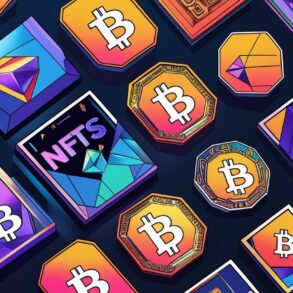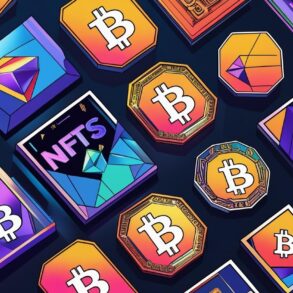
Tokenization’s potential goes far beyond traditional art markets, opening new avenues for investment and ownership in various industries.
In a recent discussion, Roundtable anchor Rob Nelson, Sam Price, host of CryptoLifer, and David Packham, CEO of Chintai, discussed how the rise of tokenized assets could disrupt established markets and create innovative opportunities.
Rob Nelson began the conversation by questioning whether art is a significant enough space for tokenization. While acknowledging the ease of entry art provides, he emphasized that sports, entertainment, and other sectors could present even more lucrative opportunities. Nelson pointed out that the NFL and other major sports leagues are likely to capitalize on tokenization, suggesting that the potential revenue could be enormous.
Sam Price built on Nelson’s argument, highlighting how digital content creators and athletes could tokenize their assets. He envisioned a future where fans and followers could buy shares in YouTube channels, Instagram accounts, or even the careers of emerging athletes. Price suggested that this model would allow fans to have a financial stake in the success of their favorite creators and athletes, turning passive support into active investment.
Scroll to Continue
Recommended Articles
Ice Cube’s Big3 basketball league was among the first sports startups to attempt to leverage NFTs to offer ownership rights and enhanced fan experiences back in 2022. At the time, the league sold top-tier NFTs priced at $25,000 that boasted unlock-able experiences, like joining team calls and talking with the referees after games, and even boasted a share of proceeds in team sales pending “SEC approval.” Lower-priced Big3 NFTs were selling this week for about 20% of their original price.
David Packham offered a broader perspective, citing his experience with Chintai’s client Premier Acquisitions, a global art dealer looking to tokenize $150 million worth of high-value art. While acknowledging the disruptive potential in the art world, Packham agreed that the real power of tokenization lies in its application to other asset classes like bonds and sports. He emphasized that the ability to fractionalize ownership could democratize investment opportunities, allowing everyday investors to own pieces of valuable assets previously out of reach.
This post was originally published on this site be sure to check out more of their content








